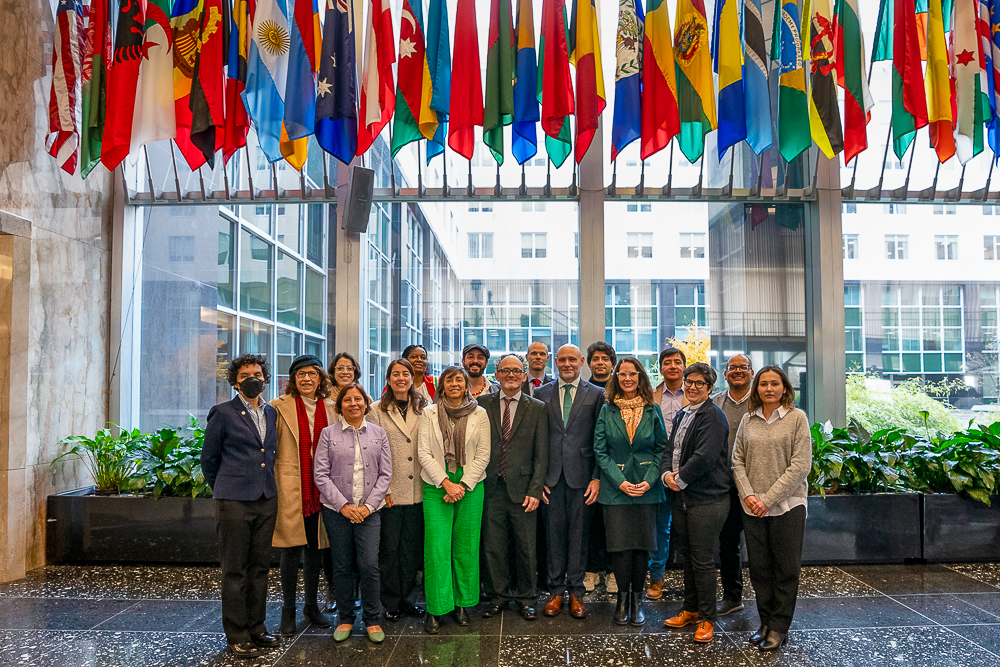
Fulbright Amazonia Week capped eighteen months of high-impact research, prompting the U.S. and Brazilian governments to announce a renewal of the Fulbright Amazonia Program for a second cycle.
Representing Bolivia, Brazil, Colombia, Ecuador, Peru, Suriname, the United States, and Venezuela, sixteen Fulbright Amazonia Scholars and two co-lead scholars finalized and shared the conclusions of their projects from December 9 to December 12, 2024. They presented their individual and collaborative research on public health, the economy, and the environment and explained their policy recommendations to the public and government representatives. The events included opportunities for the Fulbrighters to present at a poster exhibition at the National Academy of Sciences, panels at the United States Institute of Peace, and a policy symposium livestreamed for the public, as well as attend events at the Colombian and Brazilian embassies.
Dr. Patricia Gruber, Science and Technology Adviser to the U.S. Secretary of State, presided at the public policy symposium. She thanked the Fulbrighters for acting as “science diplomats” while working with communities across the Amazon basin and United States. She remarked that “The Fulbright Amazonia Program best illustrates how science diplomacy builds bridges and expands scientific networks to address pressing global challenges.”
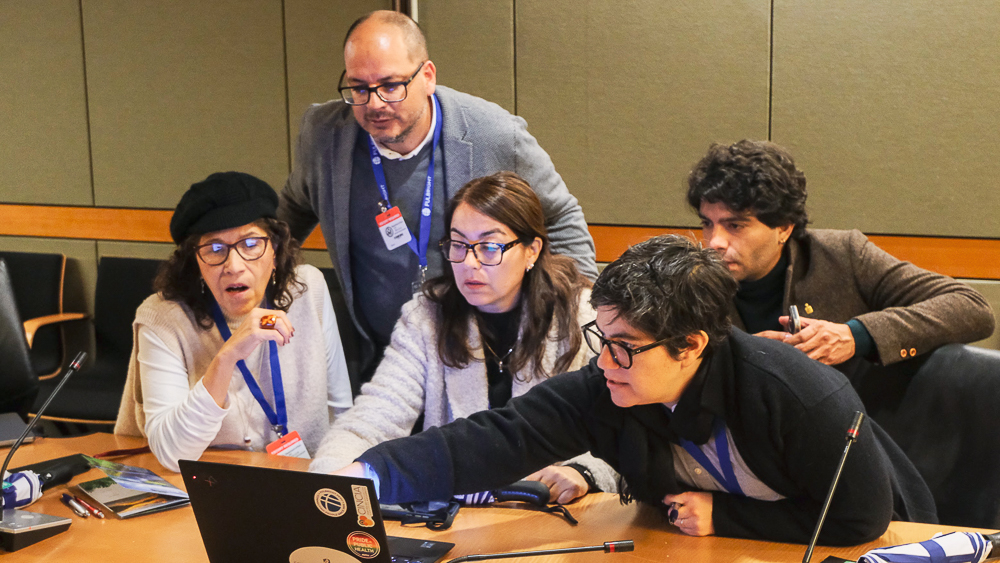
Fulbright Amazonia’s collaborative structure provided the scholars “a space to work together over a long period of time, with a concrete goal of transforming their academic research into policy. It was inspiring to see how strong relationships can develop when people have a supportive space to expand their thinking and work with people from different backgrounds,” explained co-lead scholar Jeffrey Hoelle. Fulbright Amazonia Week in D.C. was the last of three in-person collaborative meetings that combined analyzing data with fellow scholars, and meeting local communities and policy stakeholders.
In addition to the gathering in Belém, Brazil and the midterm meeting in Leticia, Colombia, the Fulbright Amazonia Scholars also met every month on virtual calls with their thematic research groups (climate change and adaptation, human and environmental health and security, and bioeconomy and sustainable development), and completed in-person exchanges to either the United States or other nations in the Amazon for two to three months. Thanks to these interactions and exchanges, “many more results will emerge through the network of collaboration built, and it will last far beyond the mandate of the Program,” said co-lead scholar Valério Gomes.

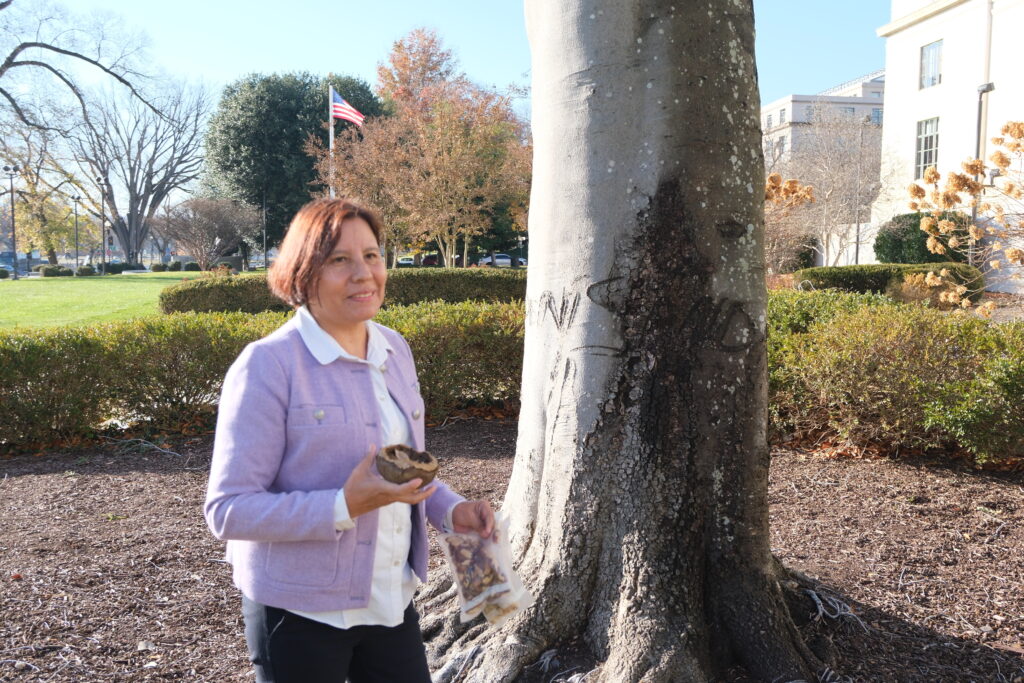
The Amazonia scholars expanded their research networks while also investigating how international cooperation is needed to solve the most pressing issues that face the Amazon. At the poster exhibition at the National Academy of Sciences, Dr. Galia Selaya from Bolivia explained how she and collaborators from Indigenous communities across Bolivia, Brazil, and Peru work together to trace changes in the forest that can help prevent illegal mining and land grabbing. She relied on knowledge from citizen scientists and local law enforcement to map these disruptions, and concluded that local law enforcement cooperating across borders was the most effective tool for stopping illegal activities. Similarly, Dr. Liliana M. Dávalos of the United States argued that in order to stop drug trafficking in the tri-border region of Colombia, Brazil, and Ecuador, each country would need to work together to “trace the money flows” and find how profits from cocaine are being laundered through the trade in Amazonian products such as fish, timber, and gold.
Dr. Juan Pablo Iñamagua from Ecuador agreed that the goal of his research was to serve local communities while addressing global problems and “bridge the gap between farmers and politicians.” Iñamagua studies “silvopastoral” agriculture, a way of planting crops that preserves or restores forests in the same space as pastureland for cattle. He says that farmers need the encouragement of agricultural subsidies from the government to help the transition, but his research shows that after five years, the farms are more profitable and sustainable than land without trees.
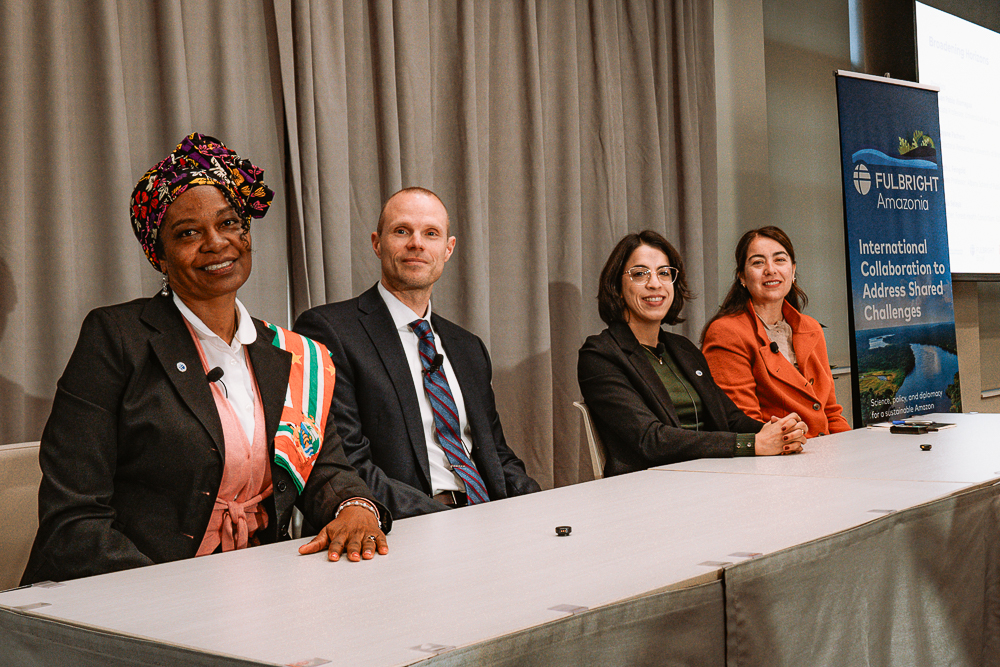
At the policy symposium that concluded Amazonia Week, Dr. Simone Athayde of the United States defined ‘socio-bioeconomy’ on behalf of their group, explaining that they analyze the production and supply chains of food, pharmaceuticals, timber and cosmetics in the context of the local communities, small farms, and family businesses that are most involved in that work. Mayra Esseboom, Fulbright Amazonia Scholar from Suriname, shared her conclusion that creating policy that is good for small farmers, Indigenous communities, and Afro-descendant communities is both good for the environment and good for the market. For example, the best crops of açai berries in Suriname come from the forest, harvested by traditional methods, rather than commercial farms.
Fulbright Amazonia Scholar and physician Dr. Paola Torres-Slimming from Peru provided medical training in rural and Indigenous communities and researched how water insecurity affected mental health. She was proud that the Fulbrighters’ policy recommendations “bring out the voices of the people.”
Across all thematic groups, the scholars noted that there is a need for high-quality and standardized data collection that can be compared across countries, particularly as many rural and Indigenous communities straddle national borders.
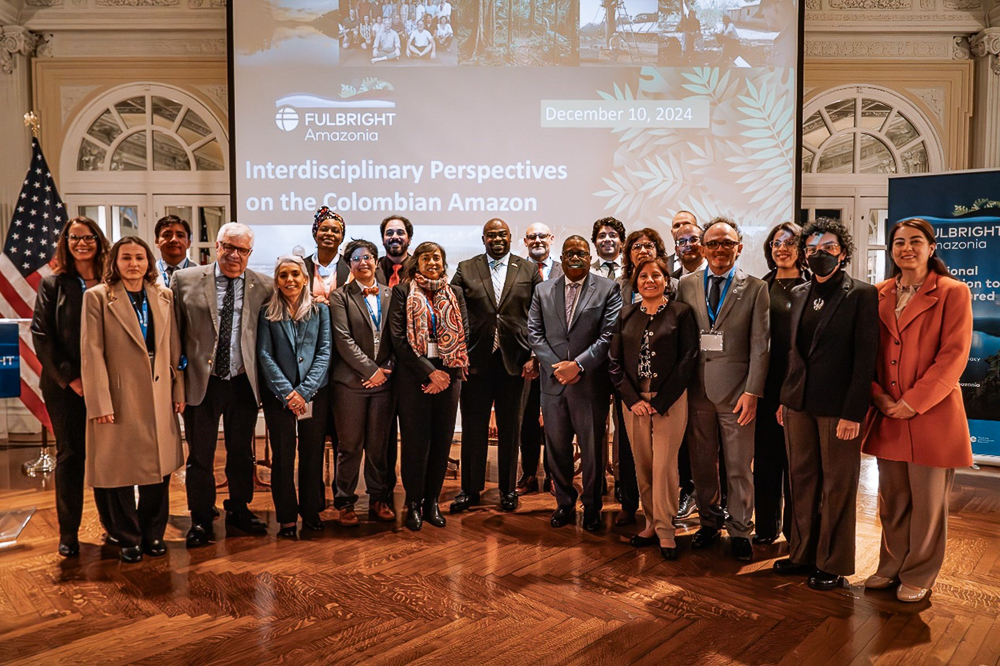
Dr. Tegan Blaine, PhD, director of climate, environment and conflict at the U.S. Institute of Peace, encouraged the Fulbright Amazonia Scholars to share data widely as well, and engage in a “two-way relationship” between researchers and government officials during her remarks. Throughout the week, the Fulbrighters had opportunities to fulfill this call by presenting their research to representatives of the embassy of Colombia, the Brazilian Ambassador to the U.S. Maria Luisa Ribiero Viotti, and the U.S. Ambassador to Brazil Elizabeth Frawley Bagley.
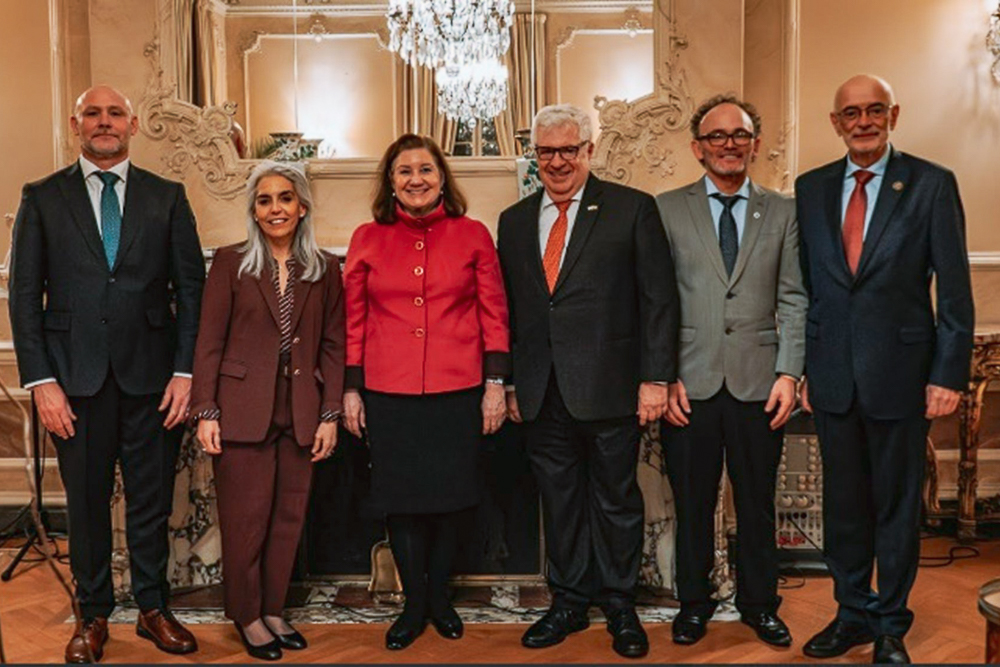
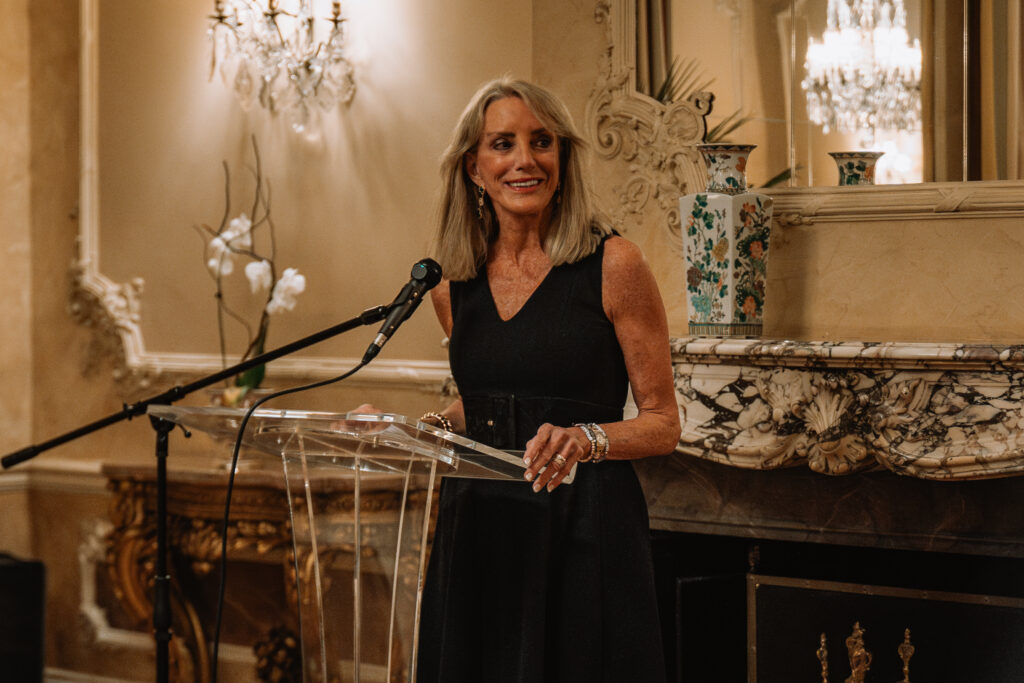
Reflecting on the successes of the first cohort, Executive Director of the Fulbright Commission in Brazil Luíz Loureiro was excited for the future of Fulbright Amazonia. He said, “as we look ahead to the second iteration of Fulbright Amazonia, proudly co-funded by the U.S. and Brazilian governments, the program takes on even greater significance. This shared commitment underscores the value both nations place on the Amazon and the importance of collaborative stewardship. Fulbright Amazonia reminds us that science and diplomacy, when combined, are potent tools for fostering peace, progress, and sustainability.”
Information about the Fulbright Amazonia initiative and each Fulbright Amazonia Scholars’ current affiliations and individual projects available at www.fulbrightprogram.org/amazonia.